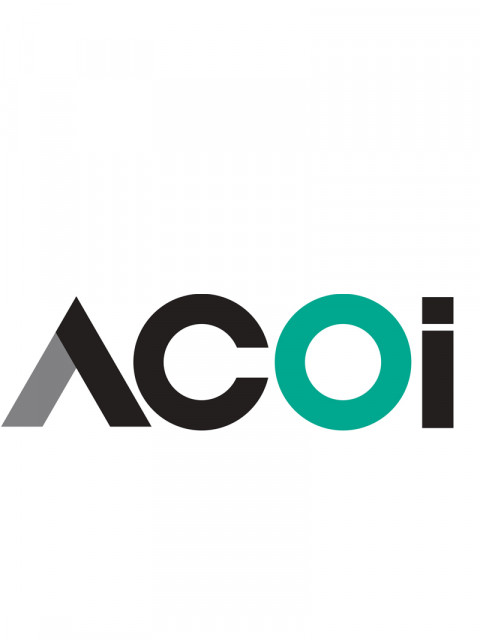ACOI Responds to Senate Finance White Paper on Physician Payment Reform
Update Medicare physician payment to reflect inflation and reform budget neutrality requirements. Those were among the recommendations provided by ACOI in response to a white paper, “Bolstering Chronic Care through Physician Payment: Current Challenges and Policy Options in Medicare Part B,” issued by the Senate Committee on Finance.
The white paper outlines policy concepts related to reforming the way physicians are paid by Medicare and meeting the needs of those with chronic illness. The white paper builds on a hearing held by the Committee in April and explores topics such as physician payment adequacy and stability, reforming the Merit-based Incentive Payment System (MIPS), incentivizing participation in alternative payment models, and improving primary and chronic care delivery.
In its letter, ACOI encouraged congressional action to ensure, at a minimum, that physicians do not sustain another cut to their Medicare payments next year. ACOI also expressed support for a new quality measurement concept to replace MIPS that would eliminate the current MIPS tournament-style payment adjustments and instead link physicians’ MIPS performance to their annual payment update.
On the subject of chronic care management, ACOI acknowledged that removing beneficiary cost sharing for chronic care management services is one way to improve their uptake, but emphasized more needs to be done to prevent the onset of chronic diseases and to diagnose them earlier.
ACOI will continue to look for opportunities to weigh-in with Congress on legislative reform to the Medicare physician payment system and will share updates through ACOI news channels.
Prior Authorization Bill Reintroduced with Strong Support
Legislation to streamline and improve transparency of prior authorization processes used by Medicare Advantage (MA) plans has been reintroduced in Congress. The Improving Seniors’ Timely Access to Care Act (S. 4532, H.R. 8702) is endorsed by ACOI and nearly 400 other organizations and has the bipartisan support of 44 senators and 136 representatives.
The legislation passed the U.S. House of Representatives in 2022, but failed to advance further because the Congressional Budget Office estimated it would cost $16 billion over 10 years. A prior authorization rule finalized by the Biden Administration earlier this year lowered the bill’s fiscal footprint substantially, and changes to the bill text bring the cost to near $0.
The bill would largely codify current regulations by:
- Mandating compliance with uniform electronic prior authorization technical standards; and
- Including robust transparency requirements (e.g., disclosure of policies and evidence utilized in formulating prior authorization, listing of all services subjected to prior authorization, how many services are denied and overturned on appeal, etc.).
To get to a zero cost, refinements to the bill were made including requiring the Centers for Medicare and Medicaid Services and the Office of National Coordinator for Health Information Technology to submit a report to Congress detailing a process for real-time decisions for items and services routinely approved (based on data collected through the transparency requirement) for the purposes of the required electronic prior authorization program. The report would need to include a determination of how the use of automated decision-making and artificial intelligence by MA plans affects patient access to routinely approved items and services, and how it impacts disparities in access for rural and low-income beneficiaries.
The bill also gives the Secretary of Health and Human Services the authority to enforce the real-time prior authorization processes for routinely approved services and issue tighter timelines for health plans to make utilization management decisions, such as 24 hours for emergent services.
Bill sponsors/original cosponsors were: Sens. Marshall, M.D. (R-KS), Kyrsten Sinema (I-AZ), John Thune (R-SD), Sherrod Brown (D-OH), and Reps. Mike Kelly (R-PA), Suzan DelBene (D-WA), Ami Bera, M.D. (D-CA), and Larry Bucshon, M.D. (R-IN)
ACOI Offers Input on GME Policy Changes
ACOI has responded to draft Graduate Medical Education (GME) policy changes put forth by a bipartisan group of members of the Senate Finance Committee interested in addressing healthcare workforce shortages and gaps.
Among the group’s draft policy proposals is increasing and improving the distribution of GME slots to rural areas and key specialties in shortage. In its letter, ACOI noted projected shortages in both primary and non-primary care physicians and encouraged the specialty allocation of additional slots be proportionate to projected needs.
In response to concerns expressed by stakeholders that rural hospitals lack the infrastructure and resources to establish residency training programs, the draft document includes a proposal to allow additional sole community hospitals and Medicare-dependent hospitals to receive GME payments to support the cost of training residents in rural communities. ACOI emphasized the need for an infrastructure that supports quality education and the development of faculty who can and want to practice and teach in rural areas. ACOI also suggested adoption of the Rural Physician Workforce Production Act (S. 230 / H.R. 834) which would increase the physician workforce in rural areas by improving Medicare reimbursement for rural residency training.
ACOI also encouraged consideration of policies that can complement GME changes, including leveraging loan repayment programs and creating more clinical rotations and learning opportunities in rural and medically underserved areas.
The group of senators has said it will take stakeholder feedback under consideration as it continues development of its policy proposals.


